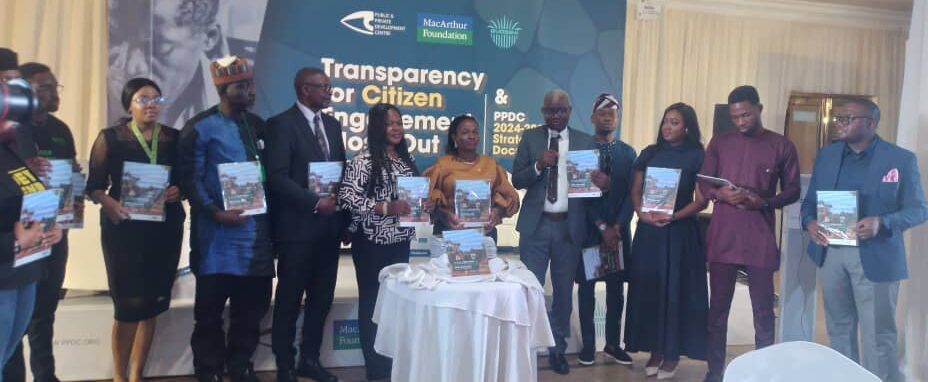Procurement: PPDC unveils $7,500 grant to empower grassroots project monitors
By Jacinta Nwachukwu
The Public and Private Development Centre (PPDC) has unveiled an application portal for the 7,500 dollars ‘Budeshi Mini Grant’ designed to empower grassroots actors monitoring public procurement projects.
Speaking at a news conference on Thursday in Abuja, the Chief Executive Officer of PPDC, Mrs Lucy Abagi, said that members of every participating group or organisation would be given 300 dollars and training to enhance their skills.
The initiative, according to Abagi, is aimed at supporting community advocates and ensuring that service delivery reaches the communities that have been left behind.
“Today, we officially opened the application portal for the $7,500 Budeshi mini grant, a major step in our efforts to localise transparency and empower civic actors at the grassroots level.
“This initiative, launched in partnership with Devon Technologies through the Budeshi platform, is designed to support community advocates.
“It covers public procurement monitors, a grassroots organisation or a citizen advocate passionate about tracking public projects and ensuring service delivery reaches the unreached communities left behind.
“The Budeshi grant application portal is an open, transparent digital platform designed to support local organisations across Nigeria in applying for and managing small grants dedicated to tracking public procurement projects in their states.
“Built by Devon Technologies Ltd. and powered by PPDC, this new system ensures that the grant process is inclusive, accountable and citizen-centered, from registration to reporting,” she said.
According to her, what truly drives change is when that access is paired with action, adding: “That’s why this mini grant is more than just funding, it’s an opportunity.
“It’s an opportunity for citizens to dig into the data, raise their voices, engage public institutions and hold duty bearers accountable,” she stated.
Abagi said that the initiative would be expanded across Africa, building a pan-African accountability movement, driven by technology, transparency and the power of local communities.
“We want to see Budeshi replicated, adapted and led by African citizens across borders. We believe that when citizens are equipped with the right tools, information and support, they don’t just track projects, they shift the system.
“So, as we begin today’s conversations and demonstrations, I invite you to engage deeply, ask questions and imagine with us: What could governance look like if transparency truly belongs to the people,” she said.
Also speaking, the Programme Officer of PPDC, Precious Adigwe, said that 37 institutions were expected to participate in the programme across the country.
Adigwe also said that there would be a new platform to ensure that the impact of the project was achieved.
“On the platform, we’re going to teach them on how to collect data, mine this data, use this data for policy advocacy, utilise the use of FOI and engage with their leaders in their communities, teaching them an all-encompassing advocacy strategy for policy advocacy.
“At the end of the day, we are not just empowering them with this stipend but also empowering them with skills that they will forever remember; that will not only build their organisations but also build the individual,” she explained.
The News Agency of Nigeria (NAN) reports that while the programme is being sponsored by PPDC, it still looks forward to seeing well-spirited Nigerians and donor agencies that will partner with it for sustainability. (NAN)
Edited by Wale Sadiq








